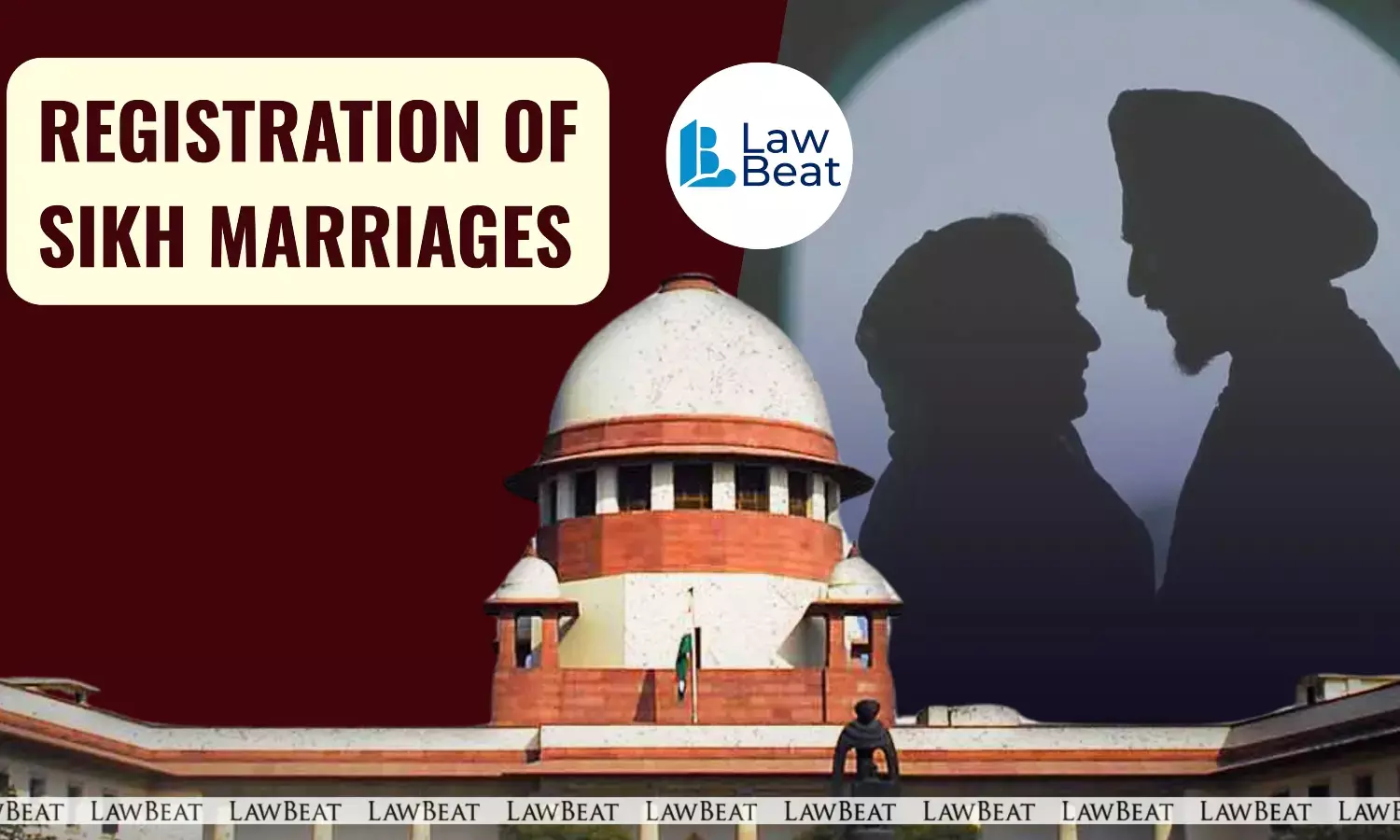Anand Karaj Marriages: Supreme Court Orders All States to Frame Rules within 4 Months

SC on Anand Karaj Marriages: “State Must Not Turn Faith Into Privilege or Handicap,” Directs Uniform Registration Rules
Reinforcing the constitutional promise of equal treatment, the Supreme Court has directed all States and Union Territories to frame and notify rules for the registration of Sikh marriages solemnised by the Anand Karaj rite within four months.
The Bench of Justice Vikram Nath and Justice Sandeep Mehta further ordered that, until such rules are notified, authorities must register Anand Karaj marriages under existing frameworks without discrimination.
The order was passed in a writ petition filed under Article 32 of the Constitution seeking a limited mandamus to operationalise Section 6 of the Anand Marriage Act, 1909, as amended in 2012. The amendment had imposed a statutory duty on State Governments to frame rules for maintaining a Marriage Register, issuing certified extracts, and providing a uniform registration mechanism for marriages conducted through the Sikh ceremony of Anand Karaj.
The petitioner argued that while some States and Union Territories had notified rules, several others had not, creating uneven access to certification and the attendant civil benefits.
The Court, after considering submissions and counter affidavits, held that the omission frustrated the legislative intent of the 2012 amendment and produced unequal outcomes for similarly placed citizens.
“It secures proof of status for residence, inheritance, succession, maintenance, insurance and particularly safeguards women and children who depend on documentation for legal protections," the Bench said.
"Uneven access to a statutory facility across States and Union Territories produces unequal outcomes for similarly situated citizens. In a secular framework that respects religious identity while ensuring civic equality, the law must provide a neutral and workable route by which marriages solemnised by Anand Karaj are recorded and certified on the same footing as other marriages," it observed.
The Bench opined that harmonisation with existing registration regimes is both practicable and necessary.
The Bench clarified that the validity of an Anand Karaj marriage does not depend on registration, but the statutory right to registration must be made effective. Failure by States to frame rules, the Court said, withholds the evidentiary and administrative benefits conferred by Parliament.
Laying down general directions, the Court ordered:
-All States and UTs yet to notify rules under Section 6 must do so within four months.
-Until then, marriages solemnised by Anand Karaj must be registered under prevailing frameworks, with the certificate recording the rite if requested.
-No authority may insist on duplicate registration under any other law once registration under the Act is granted.
-States that already have rules must issue clarificatory circulars, publish procedures online, and ensure certified extracts are readily available.
-Each State must appoint a nodal officer to oversee compliance and redress grievances.
The Union of India has been designated the coordinating authority. It must circulate model rules within two months and present a consolidated compliance status report to the Court within six months.
The Court also issued special directions for Goa and Sikkim. Both States must ensure interim registration of Anand Karaj marriages under their existing frameworks, while the Union considers the formal extension of the Anand Marriage Act, 1909 to these jurisdictions.
Disposing of the petition, the Court emphasised that no application for registration of an Anand Karaj marriage should be refused merely because rules are yet to be notified. “The fidelity of a constitutional promise,” it said, “lies not only in the rights it proclaims but in the institutions that make those rights usable.”
"In a secular republic, the State must not turn a citizen’s faith into either a privilege or a handicap. When the law recognises Anand Karaj as a valid form of marriage yet leaves no machinery to register it, the promise is only half kept. What remains is to ensure that the route from rites to record is open, uniform and fair," the Court said.
Case Title: Amanjot Singh Chadha vs. Union of India and Ors.
Order Date: September 4, 2025
Bench: Justice Vikram Nath and Justice Sandeep Mehta
